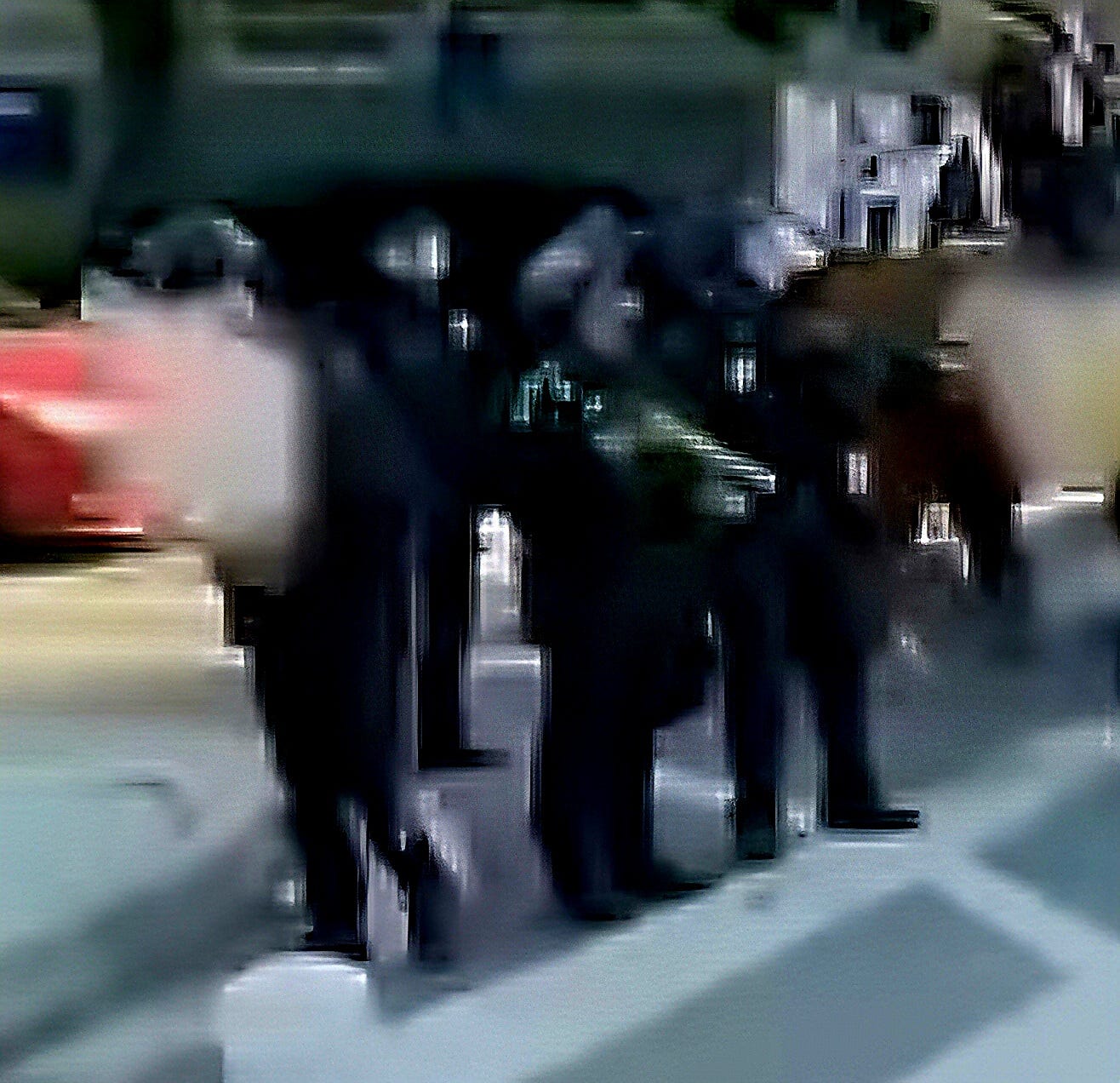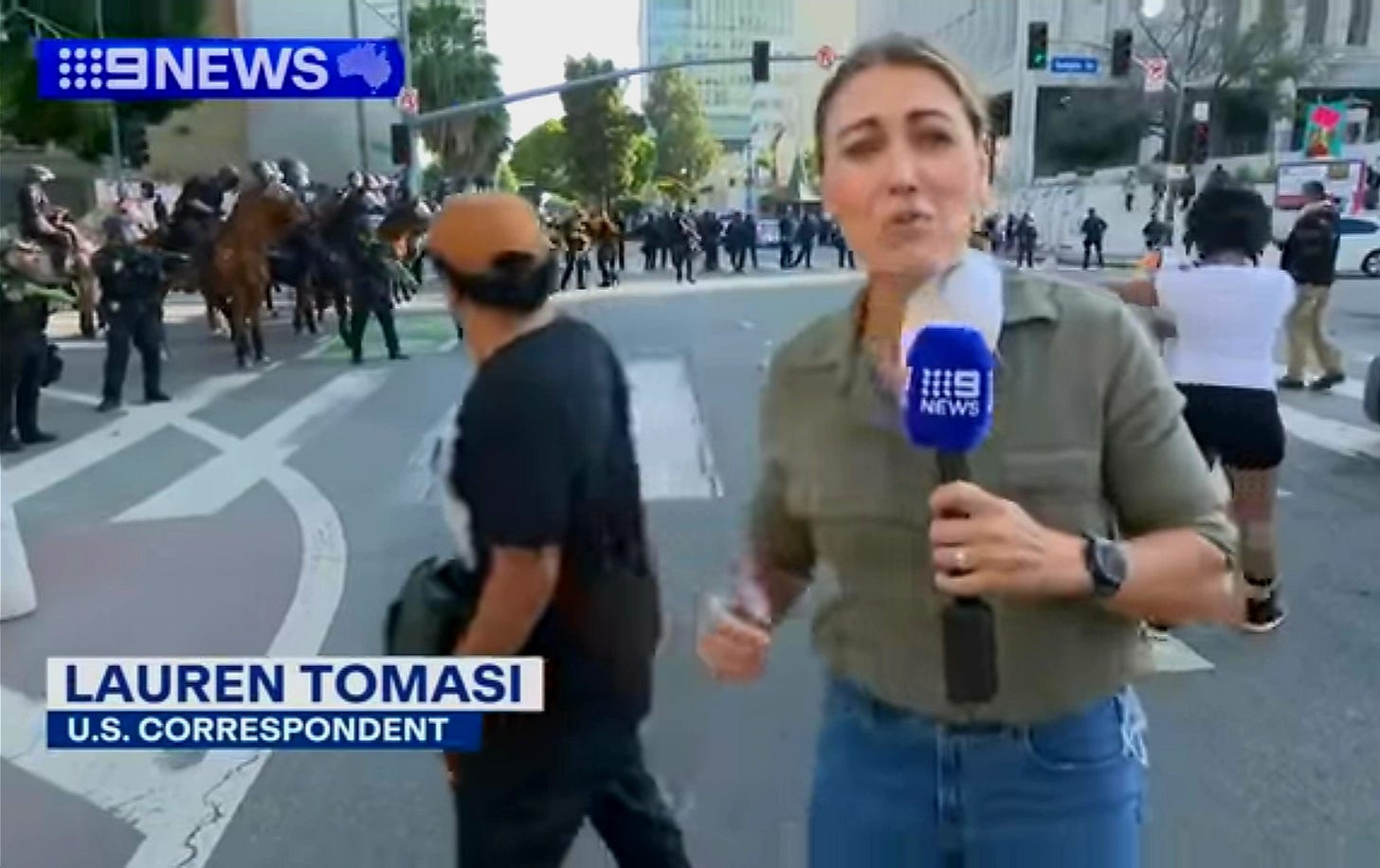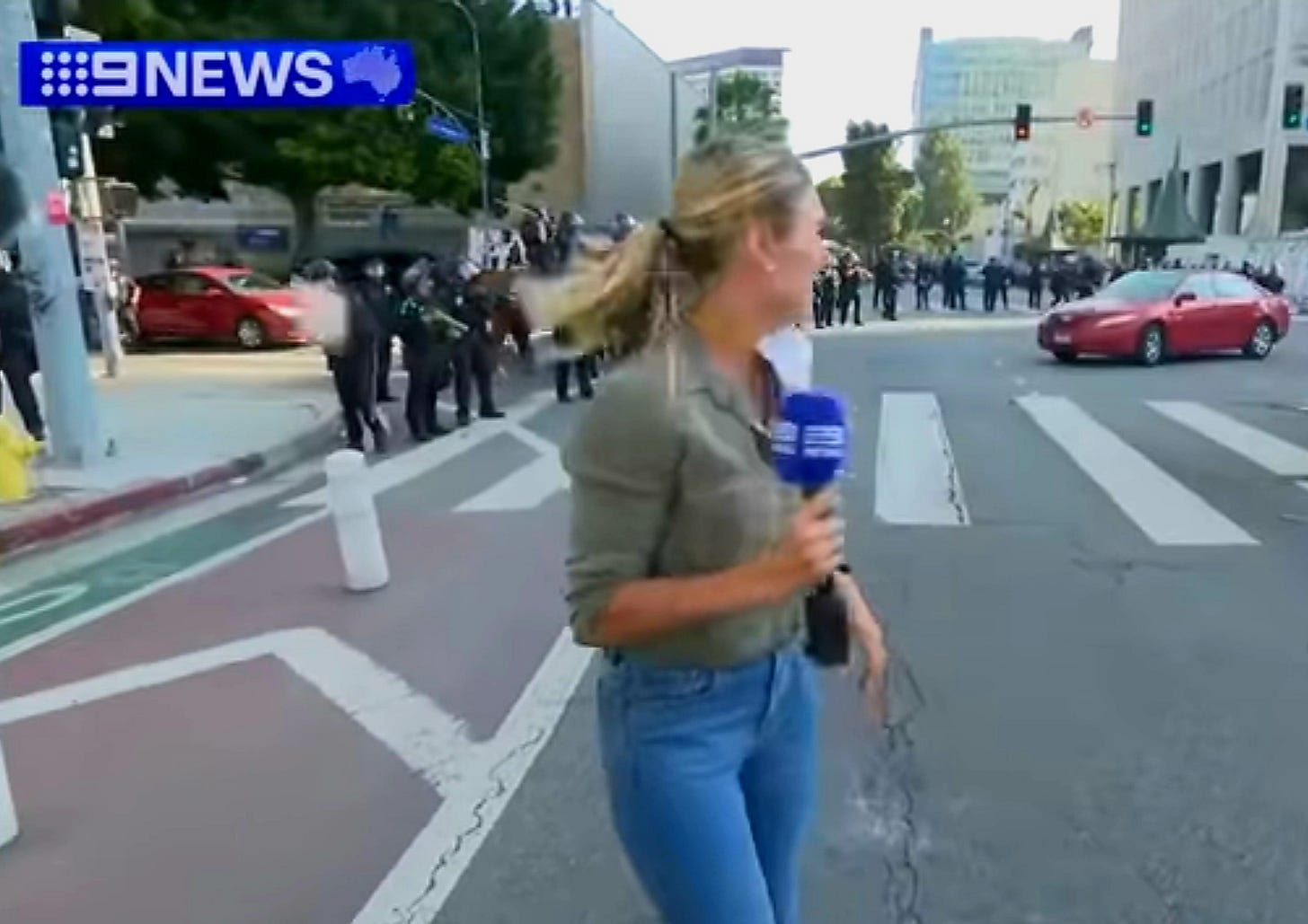Dear P.O.S.,
You aimed a weapon at a reporter and fired — not out of fear, not out of confusion, but because someone with a mic and a camera was witnessing your authority unravel. That wasn’t enforcement. That was a tantrum with a trigger. And don’t pretend otherwise.
You didn’t see a threat. You saw exposure. You saw a woman doing her job, telling the truth about the street-level brutality you and your fellow goons were unleashing on protesters, and it scared you. Not because she was violent — she wasn’t. Not because she was defying orders — she wasn’t. But because she was watching. Recording. Broadcasting.
And the truth? The real threat? It was your reflection in her lens.
You thought if you fired quickly, forcefully, live on camera, the fear would spread — to her, to her crew, to the newsroom, to every journalist watching from a distance wondering if they’d be next. You thought maybe they’d flinch. Maybe they’d think twice about showing up next time. Maybe the story would vanish if you could bruise it enough.
But all you really did was tell the world who you are.
You’re a coward wrapped in kevlar. A high-school hall monitor who traded a clipboard for riot gear and decided to cosplay as a warrior. You are not brave. You are not noble. You are not honorable. You are a thug with state funding. You are a boot with a brain stem. And every time you suit up and strap in, what you’re really doing is arming your insecurity.
And if your parents are still alive, I hope they’re watching. I hope they saw you on screen in that moment. I hope they heard the cries of the people around you, the disbelief, the fury, the horror — “You just shot the reporter!” I hope they’ve played it back and back and back, wondering how the child they raised became a footnote in the death of democracy.
Maybe they bought into the lie that cops are always the good guys. Maybe they watched too many TV procedurals, heard too many shallow speeches at badge-pinning ceremonies, and forgot that the real test of character isn’t how you act in a classroom — it’s what you do when a crowd gathers, when the cameras roll, when accountability feels like a threat.
And you failed that test in front of the whole goddamn world.
You know what journalists do? They hold power accountable. That’s it. That’s the job. They don’t carry weapons. They don’t hurl explosives. They don’t arrest people, beat them, cage them, shoot them. They witness. They document. They stand between the people and the gaslight. And you tried to blind them.
But here’s the problem: the lens doesn’t shatter that easy.
You tried to write a new law with a rubber bullet. You tried to teach us that journalism has a price, and that price is blood. You wanted the camera to go black. You wanted the mic to fall. But guess what? It didn’t. Lauren Tomasi kept filming. She kept speaking. She didn’t flinch — you did. Because no matter how much armor you wear, you’ll never be protected from the truth.
And now? You’re hiding. Anonymous. Unnamed. Sheltered by a department that would rather protect the violent than embarrass the uniform. The LAPD will cover for you because that’s the only thing they know how to do. That’s their muscle memory: suppress, deny, deflect, repeat.
But names have a way of leaking. And when yours does, it will stick to you like tar. You will be a case study. A headline. A pariah. You will be dragged through hearings, FOIA requests, journalistic exposés, citizen watch groups, and the memory of every reporter who ever took a risk so people like you couldn’t get away with it.
Do you think this ends in silence? Do you think we move on? No. This is the beginning. You shot a journalist — and now your story gets written by journalists. With fury. With precision. With every ounce of righteous indignation that you tried to suppress with your little plastic bullet.
There is no redemption arc for you. Not now. Not without accountability. Not without justice. You don’t get to climb back into your cruiser, file a bullshit report, and pretend it didn’t happen. We saw you. And even if we don’t have your name yet, we know exactly who you are.
You are the stormtrooper who shot at the scribes. You are the coward who feared the question more than the riot. You are the disgrace behind the face shield, the finger on the trigger, the smear on the badge. And when the day comes — and it will come — when your name leaks, your department panics, and your pension starts to melt in the heat of scrutiny, we’ll be waiting.
And we’ll still be reporting.
P.S.
To the rest of you officers — the ones who know damn well who pulled the trigger:
Every hour you stay silent is a choice. Every day you protect this coward, you carve your own name next to his in the ledger of complicity. You didn’t just betray your oaths — you betrayed every honest cop who still believes that the badge is supposed to mean something.
You could have stopped this. You still could. But you’re too busy protecting your own to protect the truth.
And one day soon, you’ll realize: the press never forgets. And neither does the public. Not when you shoot the messenger.
Rook T. Winchester
Closer to the Edge
This post has been syndicated from Closer to the Edge, where it was published under this address.



